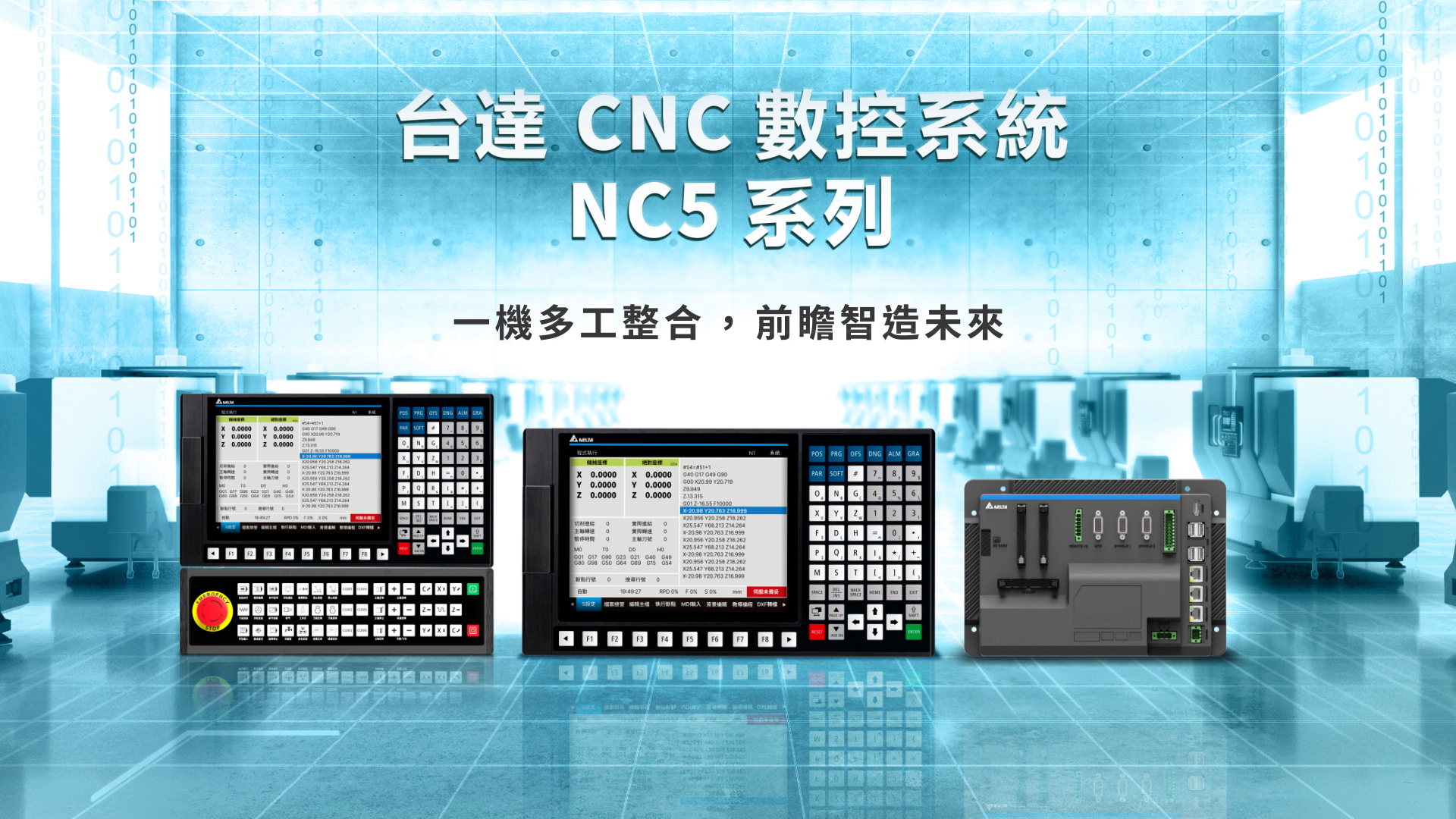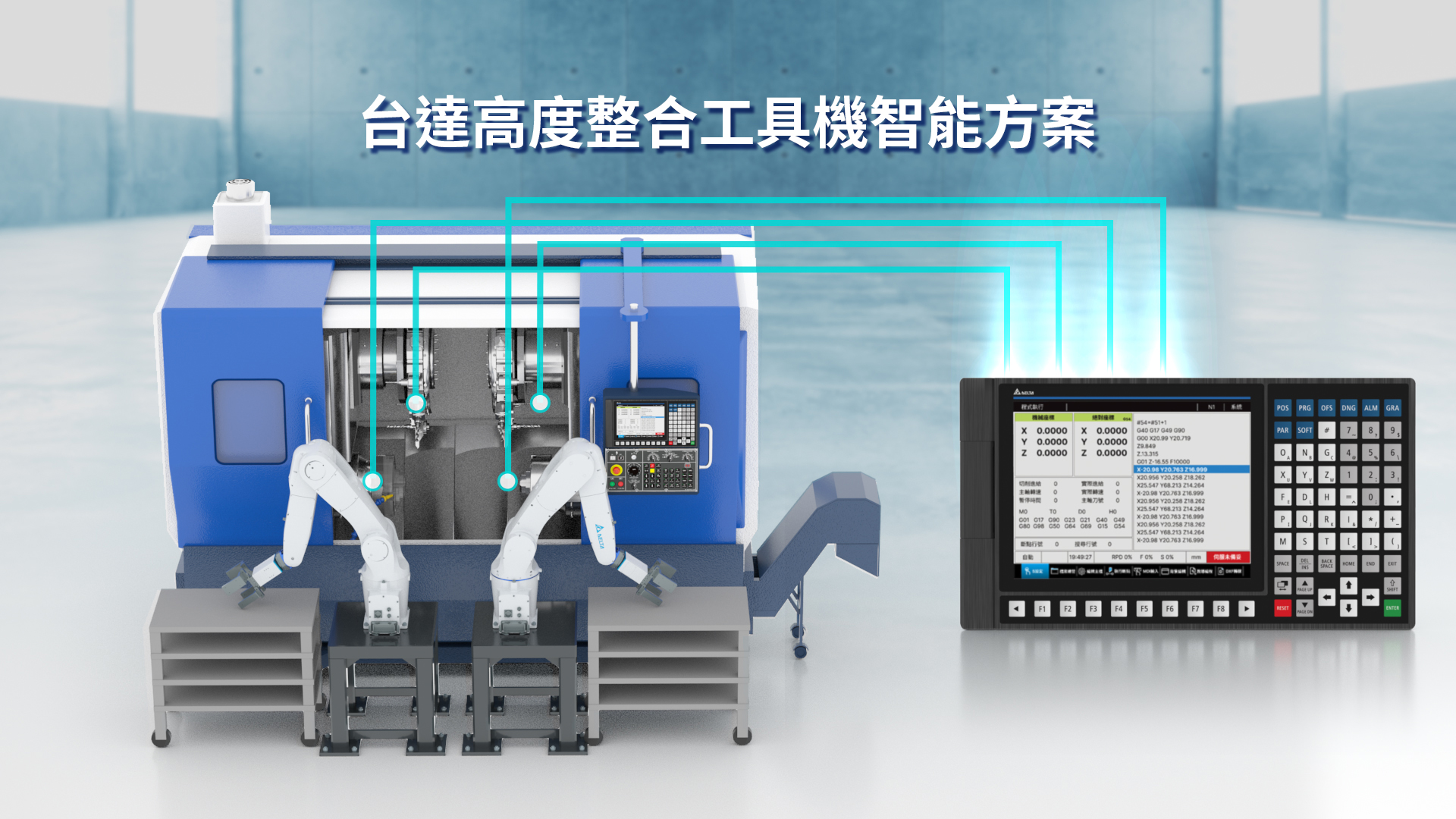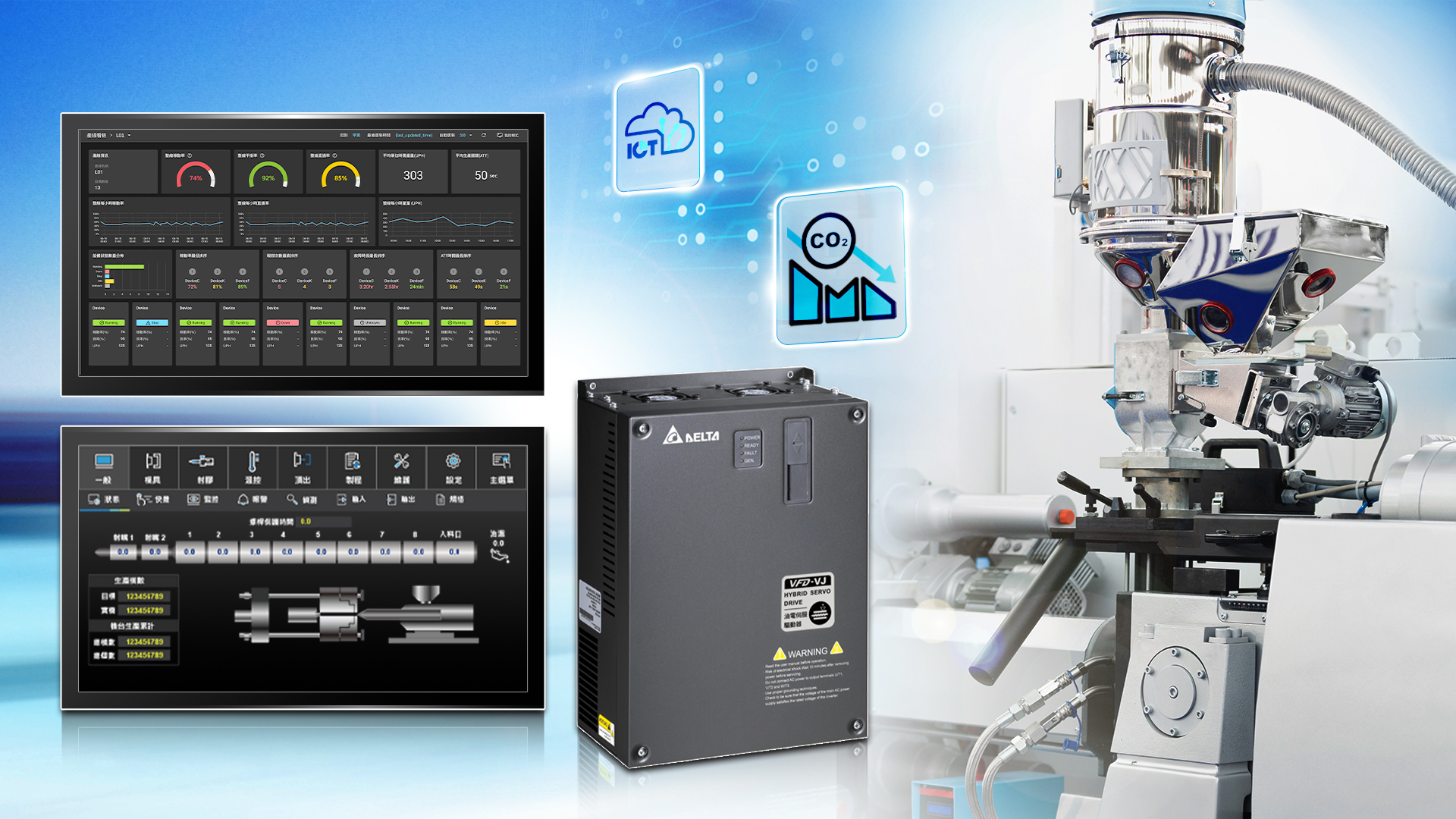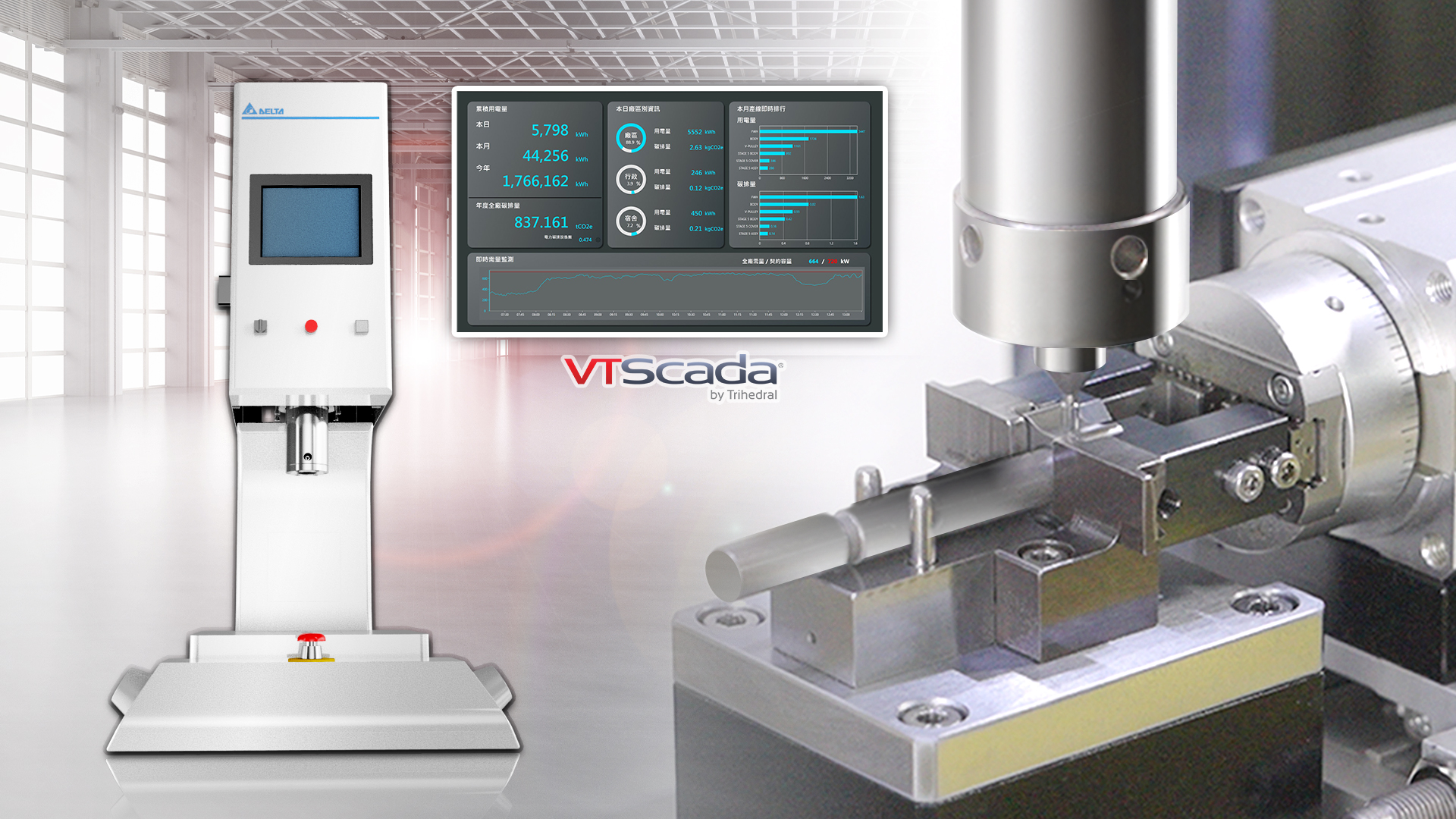
Delta’s Smart Machine Tool Solutions feature industry-specific functions and a friendly user interface. The energy consumption data can also be recorded and saved in the controller to provide traceability.

The CNC Controller NC5 is equipped with multi-core processor architecture to significantly upgrade computing capabilities.

Delta's Smart Machine Tool Solutions integrate the drives, servo systems, controllers, robots and IIoT systems to achieve intelligent machining and factory management.







